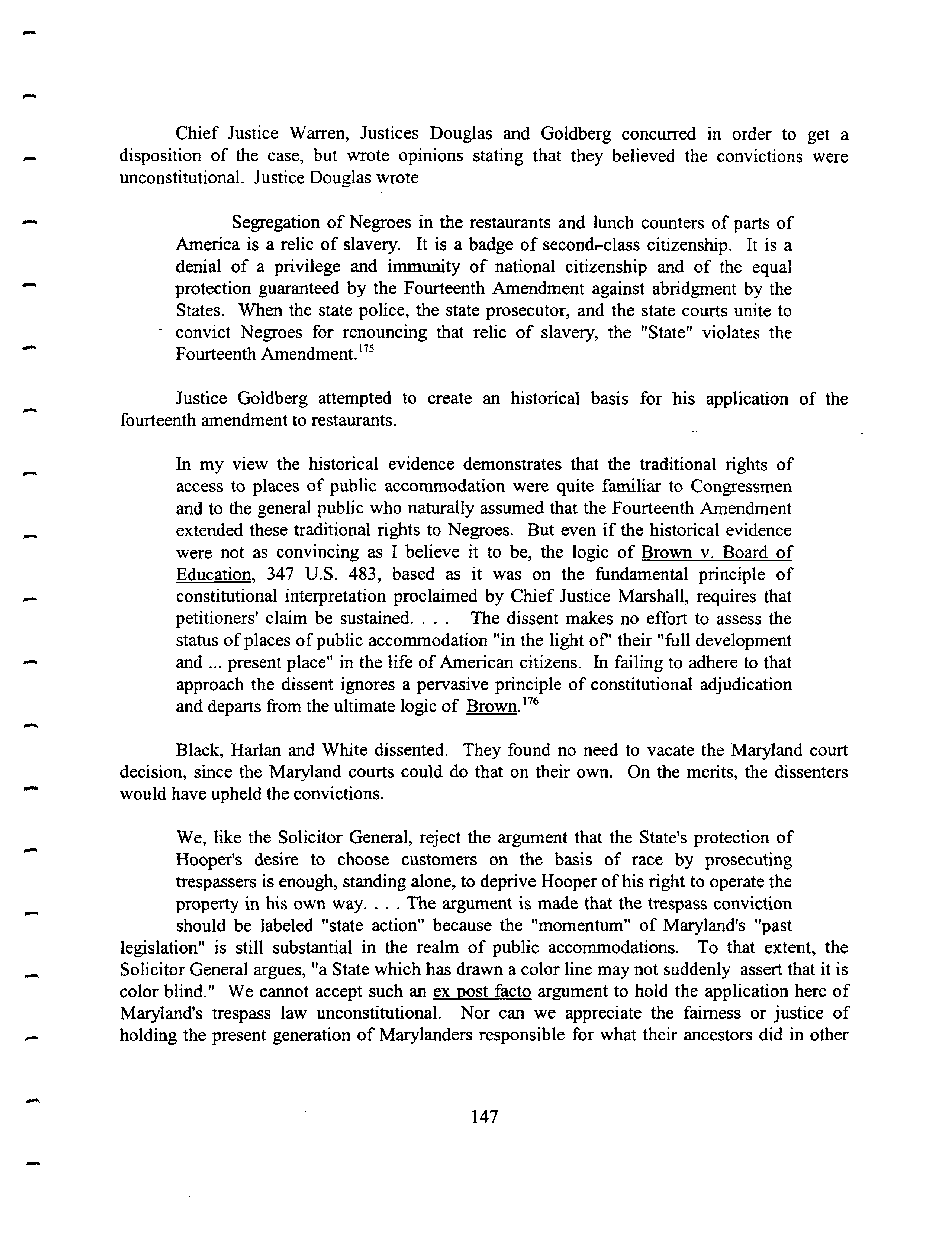|
Chief Justice Warren, Justices Douglas and Goldberg concurred in order to get a
disposition of the case, but wrote opinions stating that they believed the convictions were
unconstitutional. Justice Douglas wrote
Segregation of Negroes in the restaurants and lunch counters of parts of
America is a relic of slavery. It is a badge of secondi-class citizenship. It is a
denial of a privilege and immunity of national citizenship and of the equal
protection guaranteed by the Fourteenth Amendment against abridgment by the
States. When the state police, the state prosecutor, and the state courts unite to
convict Negroes for renouncing that relic of slavery, the "State" violates the
Fourteenth Amendment.175
Justice Goldberg attempted to create an historical basis for his application of the
fourteenth amendment to restaurants.
In my view the historical evidence demonstrates that the traditional rights of
access to places of public accommodation were quite familiar to Congressmen
and to the general public who naturally assumed that the Fourteenth Amendment
extended these traditional rights to Negroes. But even if the historical evidence
were not as convincing as I believe it to be, the logic of Brown v. Board of
Education. 347 U.S. 483, based as it was on the fundamental principle of
constitutional interpretation proclaimed by Chief Justice Marshall, requires that
petitioners' claim be sustained. . . . The dissent makes no effort to assess the
status of places of public accommodation "in the light of their "full development
and ... present place" in the life of American citizens. In failing to adhere to that
approach the dissent ignores a pervasive principle of constitutional adjudication
and departs from the ultimate logic of Brown.176
Black, Harlan and White dissented. They found no need to vacate the Maryland court
decision, since the Maryland courts could do that on their own. On the merits, the dissenters
would have upheld the convictions.
We, like the Solicitor General, reject the argument that the State's protection of
Hooper's desire to choose customers on the basis of race by prosecuting
trespassers is enough, standing alone, to deprive Hooper of his right to operate the
property in his own way. . . . The argument is made that the trespass conviction
should be labeled "state action" because the "momentum" of Maryland's "past
legislation" is still substantial in the realm of public accommodations. To that extent, the
Solicitor General argues, "a State which has drawn a color line may not suddenly assert that it is
color blind." We cannot accept such an ex post facto argument to hold the application here of
Maryland's trespass law unconstitutional. Nor can we appreciate the fairness or justice of
holding the present generation of Marylanders responsible for what their ancestors did in other
147
�
|

